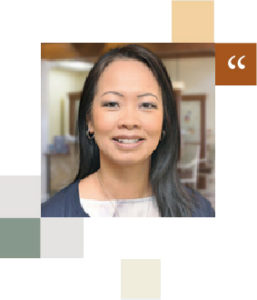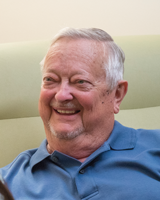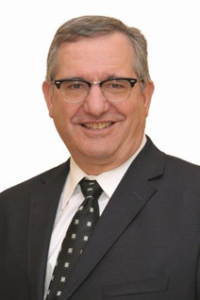Summer Safety Tips
Summer is here! It’s time to enjoy pool parties, outdoor barbecues, trips to the beach, picnics in the park and tons of other fun outdoor activities that The Villages® and the surrounding community have to offer. When spending time outside, especially in Florida, we have to be careful about sun exposure, heat exhaustion and water safety. Below you will find tips and resources to help you protect your skin while also staying cool and safe this summer.
July is National Ultraviolet (UV) Safety Month
The days are getting longer and the sun is burning brighter. It’s important to protect your skin. July is National Ultraviolet (UV) Safety Month and we are spreading the word about the importance of shielding your skin from harmful UV rays.
4 Ways to Protect Yourself from the Sun
- Stay in the Shade: Avoid or limit your time spent in the direct sunlight. The sun is strongest from 10:00 AM – 4:00 PM. During these hours, find a comfortable spot in the shade to relax.
- Apply Sunscreen: The American Academy of Dermatology recommends choosing a sunscreen that is water-resistant, has an SPF of 30 or higher and provides broad-spectrum coverage. It takes 15 minutes for sunscreen to soak into your skin, so make sure you apply it before going outside. It is also important to re-apply sunscreen every two hours, especially if you are sweating or swimming.
- Wear Protective Clothing: Many of us don’t want to wear long-sleeved shirts or pants in the summer, but covering your skin can help protect it from the dangerous UV rays. Try wearing a lightweight long-sleeved shirt. Thin cottons and linens are the most comfortable fabrics during these hot summer months.
- Accessorize: Hats are a great way to protect your face, neck and ears from getting too much sun. Sunglasses are also a great resource to protect your eyes from UV damage. Look for sunglasses that block 99-100% of ultraviolet rays.
Screen Your Skin for Changes
It is recommended to look at your skin consistently to see if you notice any new marks, moles or birthmarks. You want to look for changes in color, shape and size. Some may feel different and feel like they are raised. If you have a mark that you are concerned about, talk with your Primary Care physician. If they find something out of the ordinary, they can also provide treatment, or in more serious cases coordinate your care with a Dermatologist.
Attend our Free Skin Cancer Prevention Class
Skin cancer is the most common form of cancer in the United States. Join us for our Skin Cancer Prevention class to learn effective strategies to lower your risk while still enjoying the Florida sunshine! You don’t have to be a patient or resident to attend, so bring your friends.
Belleview
Tuesday, July 17 at 2:00 PM
Santa Barbara
Thursday, July 26 at 9:00 AM
Beware of Heat Strokes
Do you tend to get overheated? This is common, especially during these hot summer months in Florida. We have to be careful not to let our bodies get too hot. When your body reaches an extremely high temperature of 104 degrees Fahrenheit, you can be more susceptible to having a heat stroke. Heat strokes are the most serious form of heat injury. Some signs and symptoms include: nausea, rapid breathing, headaches and more. We don’t want you to have a heat stroke, so here are some tips to prevent them:
- Drink Plenty of Fluids: Staying hydrated will allow your body to sweat and maintain a normal body temperature. Dehydration is a common cause of heat strokes so make sure you are drinking a lot of water! The Mayo Clinic recommends 124 ounces (15.5 cups) of fluid for men and 92 ounces (11.5 cups) of fluid for women.
- Avoid Strenuous Activities: During the hottest parts of the day, limit physical activities. If you are exercising outdoors, plan to do it in the early morning or evening.
- Take Caution with Medications: Certain medications can affect your body’s ability to stay cool and hydrated. Read the warning labels to make sure you don’t have a higher risk for a heat related injury.

“Drink plenty of fluids, avoid prolonged exercise and activities outdoors when temps are greater than 85 degrees. Take frequent breaks and dress in comfortable, cool clothing.”
Dr. Uyen Nguyen, Colony Care Center
Water Safety Tips
Who likes to swim? Swimming is a great exercise that builds muscle and develops endurance. It also is a great way to cool down during these hot summer days! In order to help you stay safe while participating in water activities, here are some helpful safety resources:
- Wear Life Jackets: Many of us enjoy boating on the lake or in the ocean. When boating, it is always recommended to wear a life jacket. Even if you know how to swim, an emergency could happen that may impair your swimming ability. Just like you wear seatbelts in cars, make sure you wear life jackets on boats to ensure your safety.
- Be Aware of Surroundings and Warning Signs: Sometimes when you are at the beach you may notice the lifeguard has put up a red flag. This flag notifies you that swimming conditions are dangerous. Avoid swimming when strong currents and riptides are present.
- Know Your Limits: Swimming should be a fun activity, not stressful! Take a break if you are feeling tired while swimming.
One of the great things about living in Florida is that we have multiple bodies of water to swim in such as lakes, pools, rivers and oceans. Be safe and have fun out there!


